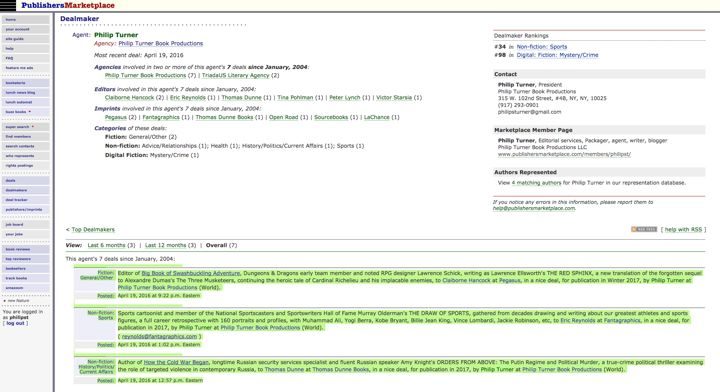New Book I’m Agenting Points to Breakthroughs in Designing & Building a State-of-the Art Military Helmet
/5 Comments/in Personal history, Family, Friends, Philip Turner Book Productions, Publishing & Bookselling, Technology, Science & Computers /by Philip Turner According to a science article by Washington Post reporter Ben Guarino, the claw of the mantis shrimp packs a wicked punch in dispatching its prey, and has even been known to split or amputate the thumbs of unlucky fishermen. But for me the most remarkable part of this fascinating article regards the material of the claw, or club, as it’s also described in the story:
According to a science article by Washington Post reporter Ben Guarino, the claw of the mantis shrimp packs a wicked punch in dispatching its prey, and has even been known to split or amputate the thumbs of unlucky fishermen. But for me the most remarkable part of this fascinating article regards the material of the claw, or club, as it’s also described in the story:
This startling book, written by two authors who’ve covered the Pentagon for many years, reveals that in the twenty-first century, while traumatic brain injury (TBI) has become the signature injury suffered by our troops, the defense establishment has failed US fighting men and women by continuing to issue them an antiquated military helmet that fails to mitigate the worst of this tragic harm, even though superior design and technology are available.
This investigation by Dina Rasor and Robert Bauman, the first book to examine this most basic item of military equipment, features the stories of two sets of whistleblowers determined to expose the truth about the failures military helmet bureaucracy. Their book braids together the two stories to chronicle the helmet scandal and its human impact.
Readers will learn about retired Navy doctor Robert Meaders, known affectionately as “Doc Bob.” He began helping his grandson obtain protective pads that deterred the blunt force and blast wave impact caused by improvised explosive devices (IEDs). These pads made even the standard issue combat helmet more protective than they were without them. Soon, frustrated by his futile efforts to convince the Marine Corps’ bureaucracy in Washington DC to add these protective pads to the helmets of combat troops in Iraq and Afghanistan, and receiving an avalanche of requests from many Marines for them, he started a nonprofit organization, Operation Helmet, to raise funds so the pads could be provided to the troops free of charge. Despite the improvements his pads offered, Doc Bob was blackballed from the military procurement system
Tammy Elshaug and Jeff Kenner, longtime employees of North Dakota defense contractor Sioux Manufacturing discovered to their dismay that the required density of the Kevlar material woven into netting supplied by Sioux for combat helmets was being shorted in the plant where they worked. Bringing their discovery to the attention of management—believing the boss would surely clean up the illegal practice—they were instead accused of stealing company secrets and having an adulterous affair. Both were fired, leading to a lawsuit and a judgment they won in court that brought the company’s bad faith practices to light.
Doc Bob did not know about Jeff and Tammy and they did not know about him. Yet all three struggled during the same time period to do what was right for the troops. This book chronicles, interwoven to show the courage and dedication of all three, and also, to explain why the Defense Dept, despite news coverage of their revelations, has continued to do the indefensible. The authors use all their years of reporting and investigative experience to explain to readers and policymaker how this could happen. Critically, they also offer information on how the public, press and the military departments can fix the problem and give US troops a better combat helmet that will help them survive their service and continue contributing to the defense of the United States of America.
Upon publication the authors will write op-eds and columns that offer an open challenge to technologists, designers, 3D printers, materials scientists, and high level defense thinkers to finally design the best possible military helmet. Despite the Pentagon’s failure to this point, we also hope to gain their attention to bring new talent and focus to the goal. In the same regard, we are excited about the effort being undertaken by the Head Health Challenge, which also relates to football helmets, an effort that has been covered by Liz Stinson in Wired magazine. I’m hopeful we’ll be able to forge a constructive link between the Defense Dept and the NFL with this initiative to design and build a superior helmet. I recommend you read the marvelous article by Ben Guarino, which also has video from UC Riverside scientist David Kisailus.
Happy I’ll Be an Editor-in-Residence for the Adirondack Center for Writing’s Summer Conference, June 11
/3 Comments/in Books & Writing /by Philip TurnerI’m pleased that for the second year in a row I’ve been invited to be the professional editor on hand and participating in the summer workshop for writers put on by the Adirondack Center for Writing, in Lake Placid, NY, coming up Saturday, June 11. I really enjoyed the conference last year, when I read and commented on the work of more than a dozen talented nonfiction and fiction writers. The format was an open one that seemed to benefit all the writers: in advance I read submissions from each writer, then on the day of the workshop I spoke in front of the whole group about the work of each writer presented to me. It proved to be a serious but not judgmental forum for all participating writers. If you live and work in upstate NY, and are interested in having me read your work as part of the workshop, you’ll find all the details at this link.
Here is a description of my session:
1:15-2:30pm How to Pitch Your Work with Philip Turner
You will be asked thousands of times, “what is your book about?” and “who is the reader for it?” You need to be able to answer these questions in a compelling way in sentence or two, though it is often hard to do this. Philip will lead a session on ways to answer these questions, and others publishing professionals may ask you. Participants will also be able to pitch their work this session and get feedback on it. This pitch will follow your project from the beginning stages all the way through marketing, so make sure it is a good one.
Also, see screenshot below of ACW’s web page with more information.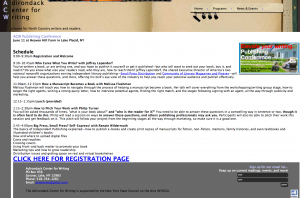
Days Getting Longer & Sunsets Lasting Longer
/0 Comments/in Bicycling, Urban Life & New York City /by Philip TurnerFor the first time this year in NYC, the sunset fell after 8pm last night, a kind of celestial milestone on the way to the Summer Solstice June 20th. I pedaled along the Cherry Walk and took a lot of pictures down there along the Hudson River, as the daylight ebbed away, amid a prolonged symphony of color and light. Here’s a thumbnail of those photos just now added to my Flickr album that’s labeled GGB/Sunsets/Hudson. Please visit there for a full sampling of images. 
Exuberant Kids on NY’s Restored High Bridge
/1 Comment/in Bicycling, Urban Life & New York City /by Philip TurnerAs I wrote on this blog in 2013, New York City’s High Bridge is a pedestrian walkway that “connected the Bronx and Manhattan beginning in 1842, an interboro link across the Harlem River that was built to bring fresh water via the Croton Aqueduct in to Gotham. The span connects 170th Street in the Bronx to 173rd Street in Manhattan. In a deliciously arcane example of NYC geography, [a reporter] points out, that’s ‘West 173rd Street and not East,’ though this is the east side of Manhattan, ‘Because it is technically west of 5th Avenue,’ the east-west midpoint of the island for street-naming purposes.”
When I wrote that in 2013 a full renovation of the span was underway, and a few months ago it reopened to the public. Last fall I pedaled up to High Bridge for my first look at the restoration of the span. Here are some pictures I took that day when I was fortunate to come upon some children playing on the new walkway. 



The Weakness of Sanders’ Candidacy is Typified by His Failure to Boost John Fetterman, or Even Know Who He Was
/0 Comments/in News, Politics, History & Media /by Philip TurnerThe weakness of Sanders' candidacy is seen in his failure to endorse @JohnFetterman or even know who he is—https://t.co/K8a9lvt2pJ #PASenate
— Philip Turner (@philipsturner) April 27, 2016
#ImWithHer but I still wanted to @JohnFetterman to win #PASenate &admire the race he ran/donated/wish him well/want to see more of him.
— Philip Turner (@philipsturner) April 27, 2016
As you can see from my tweets, I followed the fate of PA Democrat Senate contender John Fetterman, the Mayor of Braddock, PA, a down-on-its-luck former steel town near Pittsburgh, whom I liked a lot and to whom I sent contributions. He came in third Tuesday night with 20% of the vote (nearly 300,000 votes), where Katie McGinty (43%) and Joe Sestak (33%) came in #1 and #2, but the rest of the story is what I found most telling. Fetterman had endorsed Sanders in January, staking his longshot run on what I’m sure he hoped might be Bernie’s rise in PA, and I don’t doubt, a genuine enthusiasm for Sanders’ candidacy. In turn, I imagine he hoped for an endorsement, shared fundraising, invitations to share the stage at rallies, etc. Instead, he never got so much as a nod or an acknowledgment from Sanders, and in this town hall interview with Chris Hayes the day before the primary it became evident that Sanders didn’t even know who Fetterman was:
HAYES: So there’s — there’s other folks, um, who have been running — talking about some of those same things. Um, you’ve — you’ve endorsed a few of them, raised money for a few of them.
There’s a guy here in — in Pennsylvania named John Fetterman. He’s the mayor of a town named Braddock.
(APPLAUSE)
HAYES: I had him on the show, an interesting guy. The town has had a really hard time because of trade, because of the steel industry essentially dying.
He endorsed you. He says he feels basically like he’s a — sitting there without a — with a corsage, waiting for the — (INAUDIBLE) the Sanders mutual endorsement.
SANDERS: Well, I — I honestly don’t know John and I’ve heard just a little bit about him. Um, what we are trying to do now, we have endorsed and gotten some money to some candidates and I hope they win. I just don’t know enough about, uh, John, to be honest with you.
Bernie never lifted a finger for a candidate who would’ve been precisely the sort of peoples’ representative he would need in office were he to actually be elected president. Instead, Fetterman was plainly never on the radar of Sanders or his staff. This is unsurprising, given the narrow focus of the Sanders campaign, but a pity nonetheless.
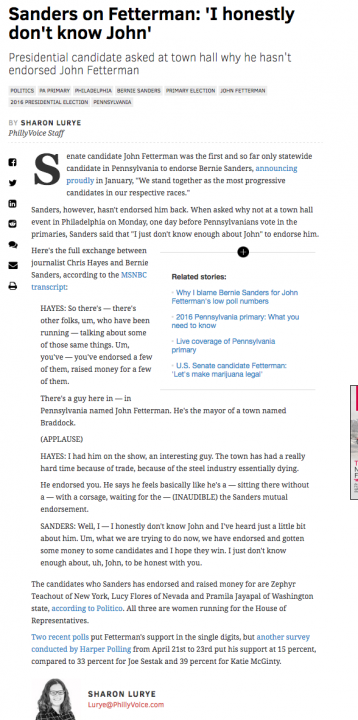
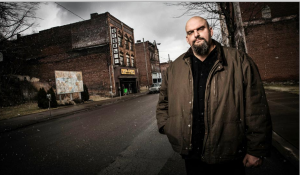
Remembering Mark Twain, and his Bucolic Grave Site in Elmira, NY
/0 Comments/in Books & Writing, Personal History, Family, Friends, Education, Travels /by Philip TurnerPaying affectionate homage to Mark Twain, who died on this date in 1910, in Redding, CT, one day after Halley’s Comet’s close approach to Earth, a celestial visitor that also neared Earth around his birth in 1835. Here’s a photo I took of his grave a few summers ago at the lovely cemetery where he’s buried in Elmira, NY.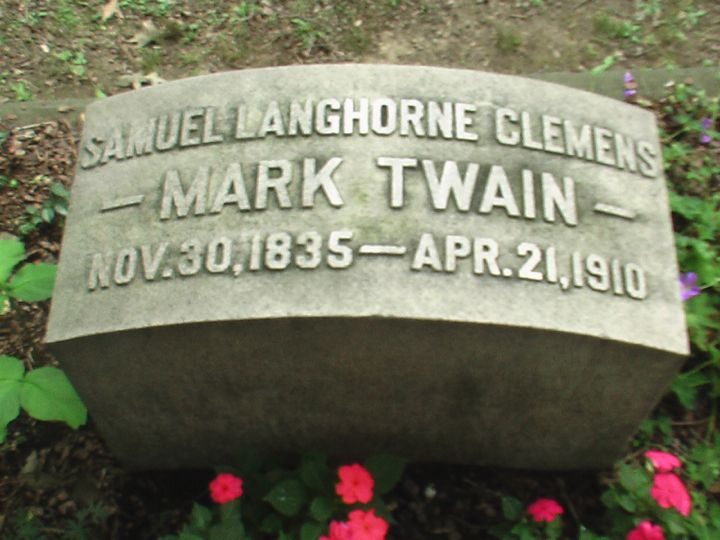
Three New Books I’ve Agented, Each Coming out in 2017
/1 Comment/in Book Biz, News, Politics, History & Media, Philip Turner Book Productions, Sports /by Philip TurnerVery pleased to share the announcement of three forthcoming books that as literary agent I’ve placed with major publishers in recent weeks. See info pasted in below as text and screenshot from my Publishersmarketplace.com page.
Fiction
Editor of The Big Book of Swashbuckling Adventure*, Dungeons & Dragons early team member and noted RPG designer Lawrence Schick, aka Lawrence Ellsworth, with The Red Sphinx, a new translation of the forgotten sequel to Alexandre Dumas’s The Three Musketeers, continuing the heroic tale of Cardinal Richelieu and his implacable enemies, in a nice deal for World Rights to Claiborne Hancock of Pegasus Books as a lead title for them in Winter 2017, by Philip Turner, Philip Turner Book Productions.*
Nonfiction/Sports
Gathered from decades drawing and writing about our greatest athletes and sports figures, sports cartoonist Murray Olderman, a member of the National Sportscasters and Sportswriters Hall of Fame, with The Draw of Sports, a full career retrospective with 160 portraits and profiles, with Muhammad Ali, Yogi Berra, Kobe Bryant, Billie Jean King, Vince Lombardi, Jackie Robinson, etc., in a nice deal for World Rights to Eric Reynolds at Fantagraphics, for publication in 2017, by Philip Turner, Philip Turner Book Productions.
Nonfiction/History/Politics/Current Affairs
Author of How the Cold War Began**, longtime Russian security services specialist and fluent Russian speaker Amy Knight’s ORDERS FROM ABOVE: The Putin Regime and Political Murder, a true-crime political thriller examining the role of targeted violence in contemporary Russia, in a nice deal for World Rights to Thomas Dunne at Thomas Dunne Books, St Martin’s Press, for publication in 2017, by Philip Turner, Philip Turner Book Productions.
—
* In 2014, I blogged about The Big Book of Swashbuckling Adventure, Lawrence Ellsworth’s earlier book.
** Earlier this year, I blogged about Amy Knight’s new project, and on a previous book of hers, How the Cold War Began, which I published with her at Carroll & Graf Publishers in 2006.

